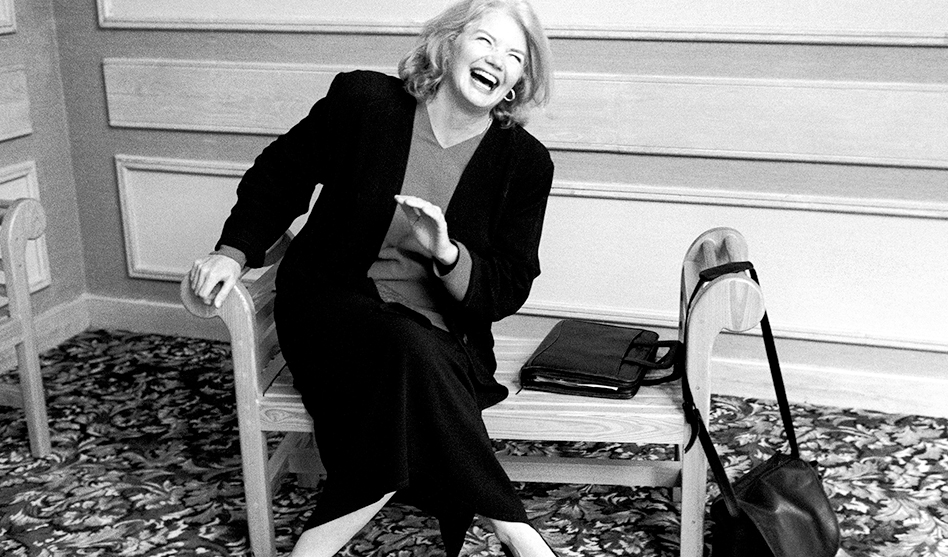Molly Ivins doc captures the genius of a Texas firebrand
ARNOLD WAYNE JONES | Executive Editor
jones@dallasvoice.com
There’s something a little pandering about a documentary about a newspaper journalist being reviewed by another journalist — kinda like a rock star shouting “Dallas audiences are the best!” from the concert stage. What, we’re gonna disagree? But even acknowledging inherent biases at work, the power of Raise Hell: The Life and Times of Molly Ivins lies firmly with the personality of its subject matter. For those who don’t recall Ivins (shame on you), she was, for a brief generation, one of the most distinctive voices in political discourse the country had ever seen. She would probably even wince at the title “journalist” — she was closer to being “a newspaperwoman,” or better yet, “a good ol’ girl with a typewriter,” conjuring her scathing witticisms about politicians with a Texas twang that was as scorching as it was hilarious.
Ivins came of age around the same time as Ann Richards, though each represented a different path along the same road — one in politics, one an observer of them. But they helped establish the image of the sassy, smart, disarming liberal unable to resist speaking truth to power.
And ohhh, the truths Ivins spoke. Her one-liners are on par with Oscar Wilde’s — “Texas public policy is like Hungarian wine — it does not travel well,” she would drawl, or commenting on Dan Quayle that he was “stupider than advertised. If you put his brain in a bee, the bee would fly backwards.” A character, a master, a raconteur.
She was also a disaster of epic, hubristic proportion. A heavy drinker prone to bouts of depression, she burned a lot of bridges … some unnecessarily. She worked for half a dozen newspapers in her 40 years, never quite fitting in (the New York Times famously banished her from its Manhattan newsroom by “promoting” her to their “bureau chief” in Denver… where she was the only employee). She peppered her prose with seeds of Texana that forced the world to think of the Lone Star State as a place of unexpected erudition; could Jaston Williams and Joe Sears have existed without her? (Well, probably.)
Raise Hell captures Ivins’ character so well, the first hour is a breathless roller coaster ride, so much you don’t want it to end… and then, as Ivins’ own life draws to a close (breast cancer killed her at age 62), the documentary slows down as well, into introspection. It becomes heartbreakingly sad, though perhaps just as inevitable — could she have continued much longer? What would the current state of influencers and fake news meant to a hard-scrabble girl like Molly?
“Texas is just like anywhere else, only more so,” she would say. But nobody was quite like Ivins. I should know — game recognizes game. And she was the champ.











